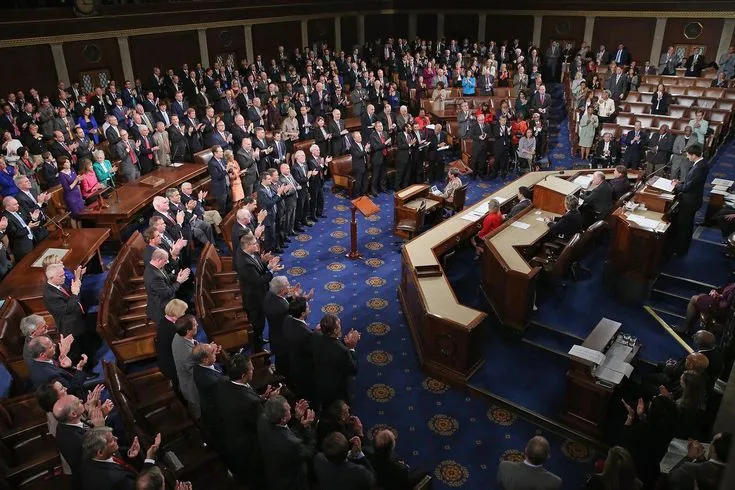The U.S. Senate passed the $895 billion National Defense Authorization Act (NDAA) with overwhelming bipartisan support on Wednesday, clearing the way for President Biden to sign it into law. However, a contentious provision related to transgender healthcare sparked significant dissent among some Democrats, highlighting deep divisions within the party.

The NDAA, which funds critical military programs and operations, passed with an 85-14 vote. While the bill received broad support, a clause restricting certain types of gender-affirming care for transgender children of military personnel drew sharp criticism from progressive lawmakers, civil rights groups, and LGBTQ+ advocates. Critics argue that the provision unfairly targets an already vulnerable group and politicizes military policy.

Senators Elizabeth Warren (D-MA) and Bernie Sanders (I-VT) were among those who voted against the bill, condemning the transgender care restriction as discriminatory and unnecessary. “This measure attacks transgender children and their families, who already face immense challenges,” Warren stated. “It’s wrong to use a defense bill to advance such harmful policies.”
For many Democrats, the vote posed a difficult choice: support a bill essential to national defense or oppose it to protest the controversial provision. Sanders acknowledged the importance of the NDAA but emphasized his moral objections. “I cannot in good conscience support a bill that denies essential care to a marginalized group,” he said.
Despite these objections, other Democrats, including Senate Majority Leader Chuck Schumer (D-NY), voted in favor of the bill. Schumer called the NDAA “imperfect” but stressed its critical role in funding military operations. “While I strongly disagree with this provision, rejecting the entire bill would jeopardize troop pay raises, weapons programs, and our ability to address global threats,” he explained.
Republicans, who largely supported the provision, framed it as a measure to protect children and ensure responsible use of taxpayer dollars. Senator Josh Hawley (R-MO), a vocal advocate for the clause, argued, “This is about safeguarding children and preventing taxpayer funds from being used for experimental medical procedures.”

The NDAA includes several key provisions, such as a 5.2% pay raise for troops, investments in advanced weaponry, and measures to strengthen cybersecurity and counter threats from nations like China and Russia. However, the inclusion of the transgender care restriction has overshadowed these achievements, sparking fears that linking defense funding to social policy could set a dangerous precedent.
LGBTQ+ advocacy groups have vowed to challenge the provision through legal and legislative means. Sarah Warbelow, legal director of the Human Rights Campaign, called the clause “an unconscionable attack on transgender children and their families.” She added, “These families sacrifice so much for our country. They deserve respect and access to care, not discrimination.”
While President Biden is expected to sign the NDAA into law, the White House has expressed opposition to the transgender care restriction and indicated plans to address the issue after the bill’s passage. Meanwhile, Democratic leaders like House Minority Leader Hakeem Jeffries (D-NY) have pledged to continue fighting for the provision’s removal in future legislation.
The debate over the NDAA underscores the ongoing tensions between national security priorities and social policy. As the bill moves forward, the controversy surrounding the transgender care provision serves as a reminder of the challenges lawmakers face in balancing these competing interests.


